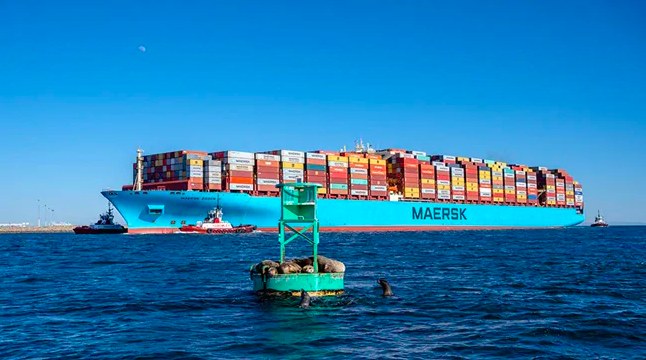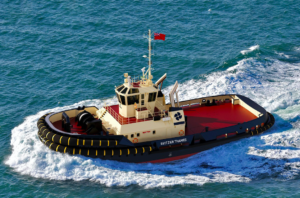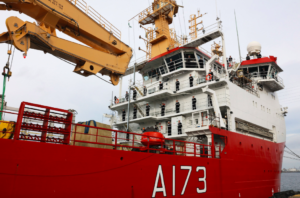Maersk calls for action against piracy surge

Maersk has demanded an effective military response to surging pirate attacks and record kidnappings off the coast of West Africa.
The number of attacks on vessels globally jumped 20% last year to 195, with 135 crew kidnapped, according to the International Maritime Bureau’s (IMB) Piracy Reporting Centre. The Gulf of Guinea accounted for 95% of hostages taken in 22 separate instances, and all three of the hijackings that occurred.
The attacks have pushed up insurance and other costs for shippers operating off West Africa, with some resorting to hiring escort vessels manned by armed navy personnel. Maersk, which transports about 15% of the globe’s seaborne freight, told Bloomberg that decisive action needs to be taken.
“It is unacceptable in this day and age that seafarers cannot perform their jobs of ensuring a vital supply chain for this region without having to worry about the risk of piracy,” says Aslak Ross, head of marine standards. “The risk has reached a level where effective military capacity needs to be deployed.”
Over 20,000 vessels a year traverse the Gulf of Guinea, making it difficult for under-resourced governments to police. It serves as the main thoroughfare for crude oil exports and imports of refined fuel and other goods.
Twenty-five African governments, including all those bordering on the gulf, signed the Yaoundé Code of Conduct in 2013 to tackle piracy. That aims to facilitate information sharing and established five maritime zones to be jointly patrolled. But this has been only partially implemented and most navies remain focused on safeguarding their own waters, says Bloomberg.
Nigeria, the regional powerhouse, has taken the lead in preventing attacks and its navy says it has arrested more than 100 suspects who are facing trial under a new anti-piracy law – the first of its kind in the region. The government plans to commission nearly $200m of new equipment this year, including helicopters, drones and high-speed boats, to boost the navy’s capabilities.
West African attacks were initially concentrated offshore Nigeria, but they’ve since spread to waters off Benin, Equatorial Guinea, Gabon, Ghana, Togo and Cameroon, according to Kamal-Deen Ali, executive director of the Accra-based Centre for Maritime Law and Security Africa and a former Ghanaian naval officer.
The pirates are increasingly operating deeper out to sea, with kidnappings on average taking place 60 nautical miles offshore in 2020, according to the IMB. The furthest out took place in mid-July, when eight machine-gun wielding pirates boarded a chemical tanker off Nigeria’s coast and seized 13 crew members before fleeing. Only unqualified seamen remained on the Curacao Trader, which was left adrift 195 nautical miles from the coast. The crew were freed the following month.
“The perpetrators of such incidents are perfectly aware there is almost no risk of being caught,” says Munro Anderson, a partner at London-based maritime security firm Dryad Global. “That is precisely the kind of incident an international naval coalition could mitigate.”
Many shipowners favour a muscular international effort modelled on the military response to hijackings offshore Somalia, which was the global epicentre of piracy from about 2001 to 2012. Armed guards and warships dispatched by the European Union, NATO and a U.S.-led task force to protect vessels traveling through the Suez Canal, one of the world’s busiest trade routes linking Europe to Asia, helped bring the problem under control.
Read the full article on Bloomberg.










